10 of the best NFT marketplaces: Where to buy and sell digital assets
Sep 23, 2025・7 min read
Non-fungible tokens (NFTs) took off almost overnight. One day, they were a curiosity, and the next they were making headlines – like when Beeple’s “Everydays: The First 5000 Days” sold for $69 million at Christie’s. Today, NFT marketplaces are filled with everything from one-of-a-kind illustrations to music tracks, gaming items, and even virtual real estate. The variety is staggering and keeps attracting both new collectors and seasoned investors.
With so many platforms to choose from, it can feel like standing in front of a hundred doors, each promising something different. Some NFT marketplaces are known for low fees, others for high-profile artists, and many for strong communities that shape the culture around them.
In this guide, we’ll share 10 of the best NFT marketplaces to help you better understand what makes each one unique and, most importantly, how to choose the platform that’s best for you.
What’s an NFT marketplace?
An NFT marketplace is a meeting point where digital creators and collectors connect. It’s part gallery, part auction house, and part storefront, all rolled into a single online platform. Here, NFTs are displayed, bids are placed, and ownership changes hands in real time.
Every NFT is tied to a unique token that carries details like ownership history and rarity, which make it more (or less) valuable. On these platforms, you can buy, sell, and trade NFTs, while blockchain technology ensures every transaction is transparent, secure, and permanently recorded. Beyond that, users can browse listings, view images of the work, learn about the creators, and see the full record of where the NFT has been.
When a deal goes through, smart contracts handle the payment automatically, transferring funds and ownership without intermediaries.
2025
Crypto Tax
Guide is here
CoinTracker's definitive guide to Bitcoin & crypto taxes provides everything you need to know to file your 2024 crypto taxes accurately.
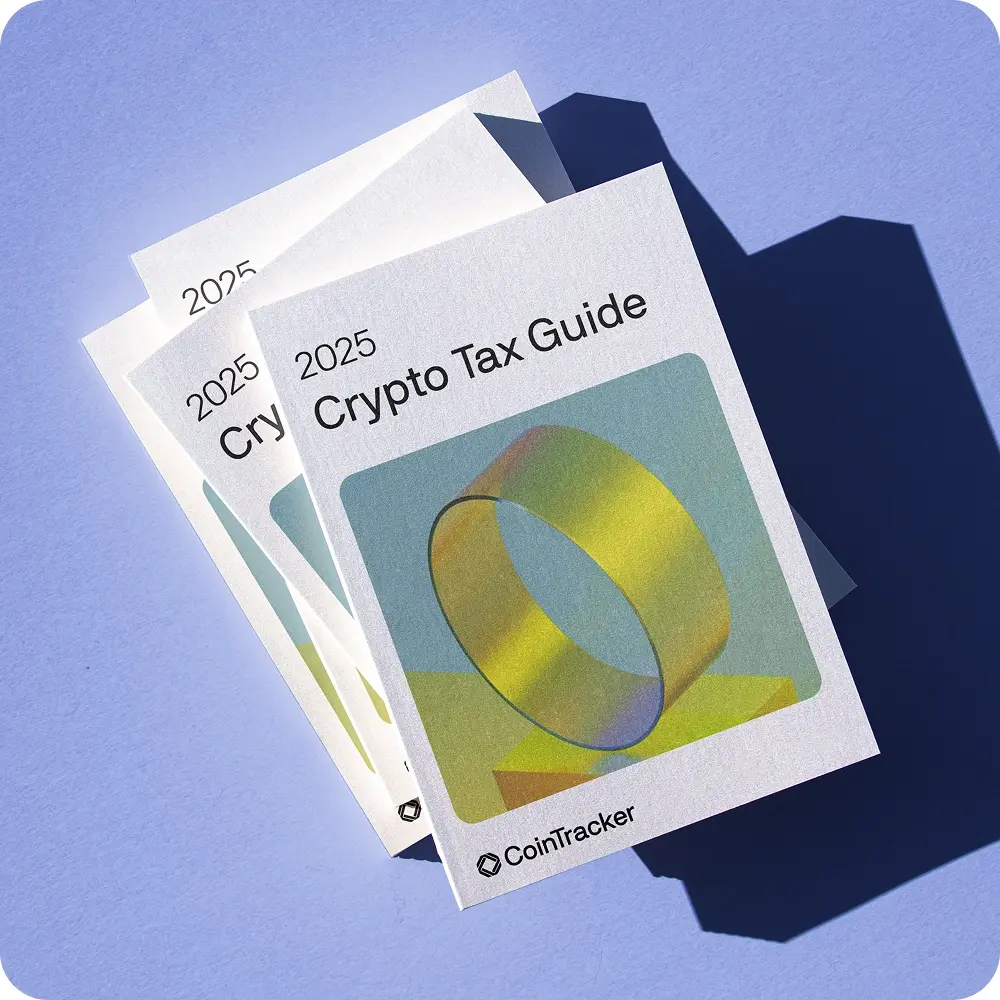
10 of the best NFT marketplaces
New NFT marketplaces are popping up everywhere, but a handful of platforms have earned real attention for their reliability, communities, and unique features. In this NFT marketplace comparison, we’ve curated a list of 10 platforms that set the tone for how people create, buy, and trade digital assets.
1. OpenSea
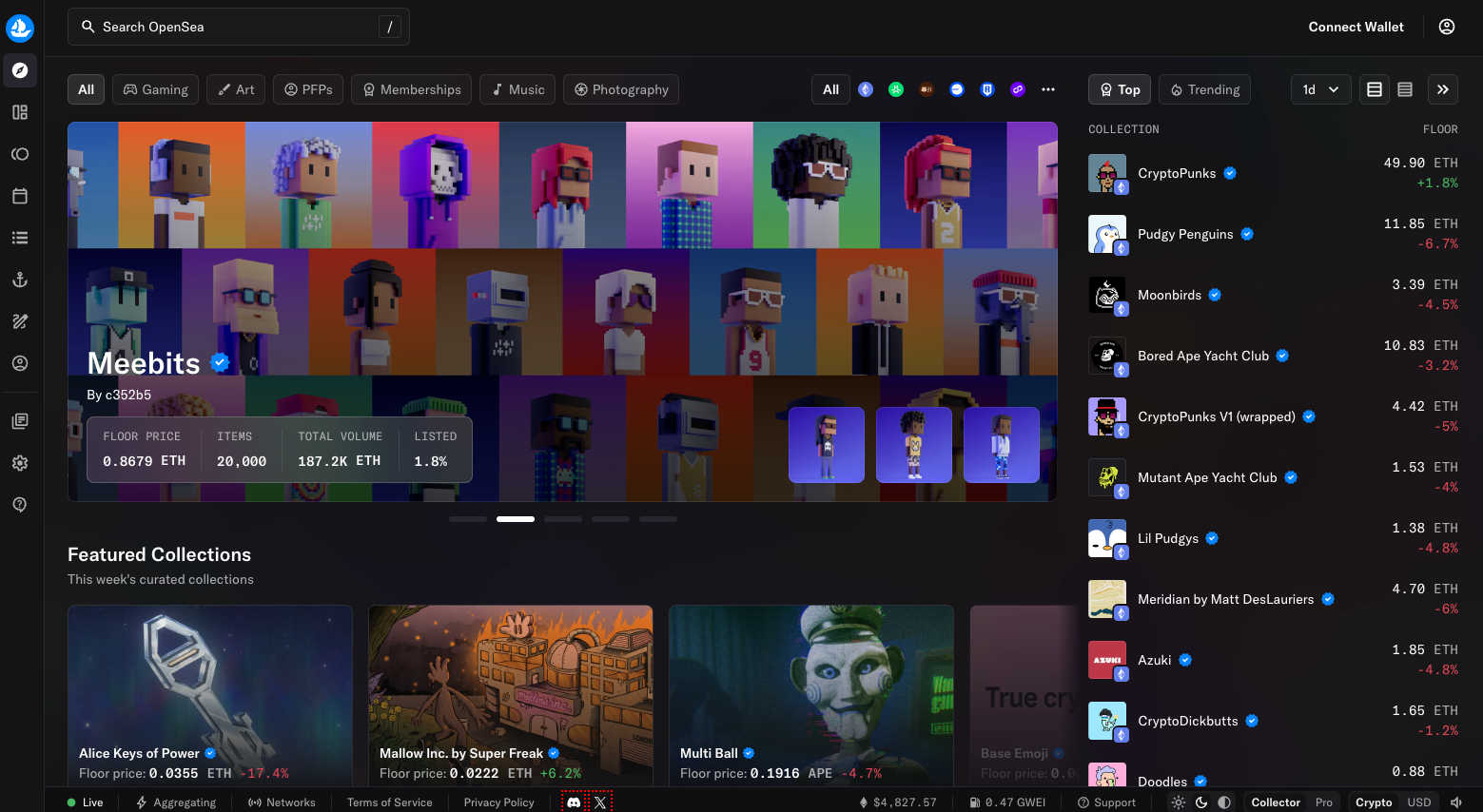
OpenSea is often called the “gateway” to NFTs – and for good reason. Founded in 2017, the platform grew from a small startup into one of the world’s largest NFT marketplaces with billions of dollars in trade. OpenSea is home to just about everything from art, music, collectibles, gaming items, and even domain names.
One of its most popular features is lazy minting, which lets creators list NFTs without paying fees upfront, making it easier for newcomers to get started.
2. Blur
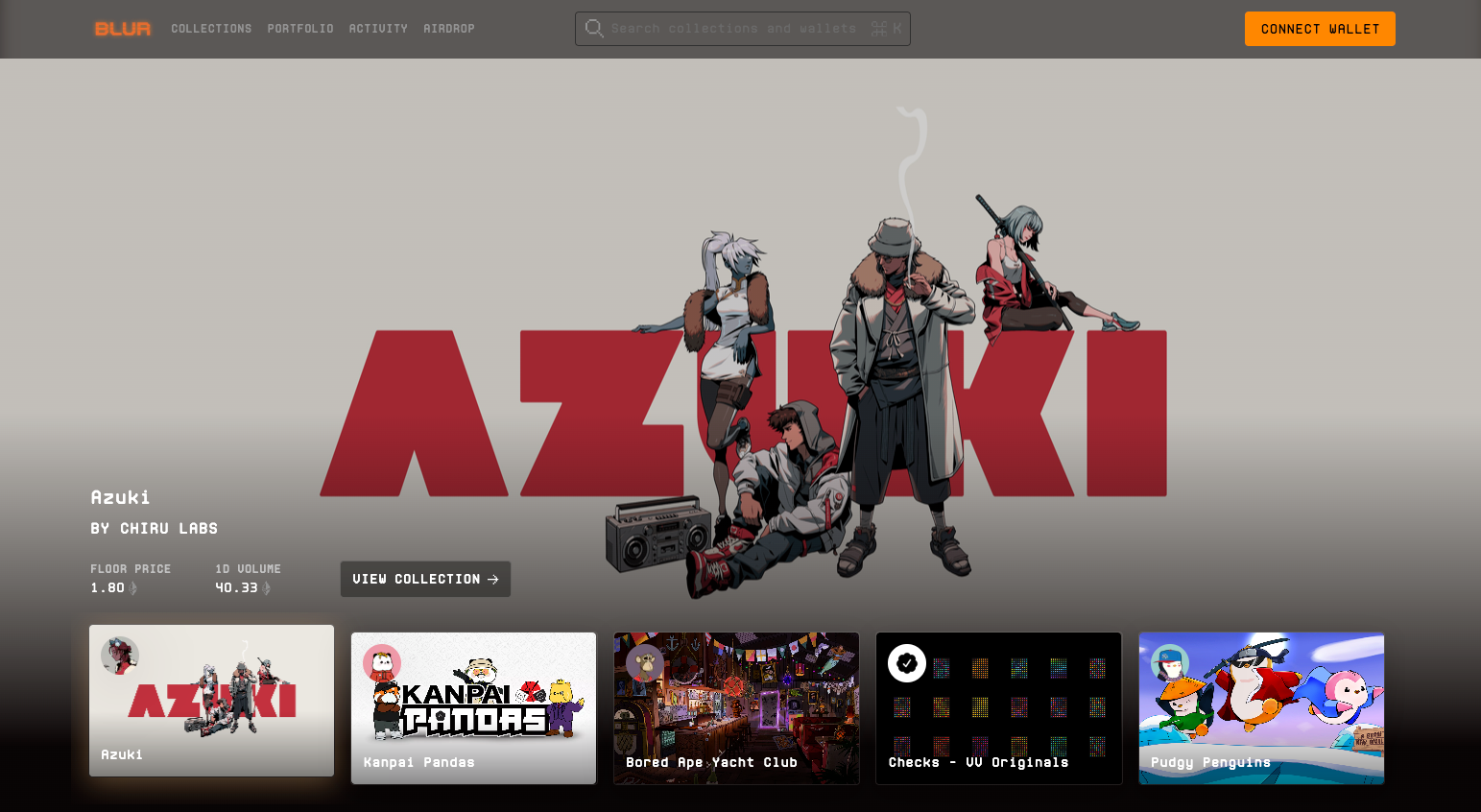
Another major marketplace built for pro traders – not casual browsers – is Blur. Launched in 2022, it quickly turned heads with zero-fee listings, a fast interface, and real-time analytics. You can “sweep the floor” and buy an entire NFT collection with one click. The platform has expanded to the Blast blockchain, adding speed and new opportunities for users who want deeper liquidity.
3. Magic Eden
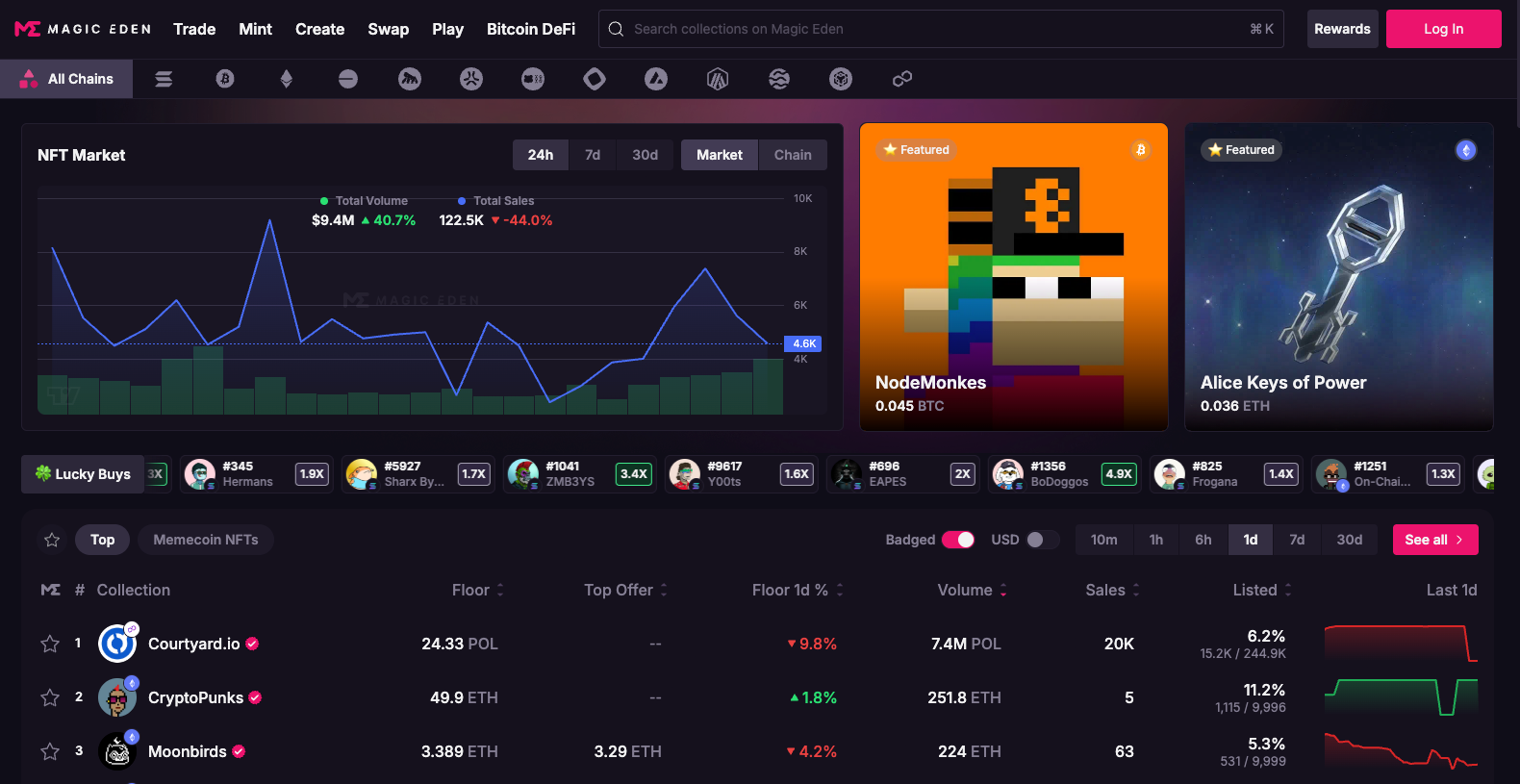
Magic Eden started as the leading NFT marketplace on Solana but quickly outgrew that niche. It soon became known for its speed, low fees, and strong community of collectors and creators. The platform has since expanded to support Ethereum, Bitcoin Ordinals, and other blockchains, giving users more flexibility in where and how they trade.
Magic Eden is well known for its launchpad, which helps creators bring collections to market with built-in visibility.
4. Rarible
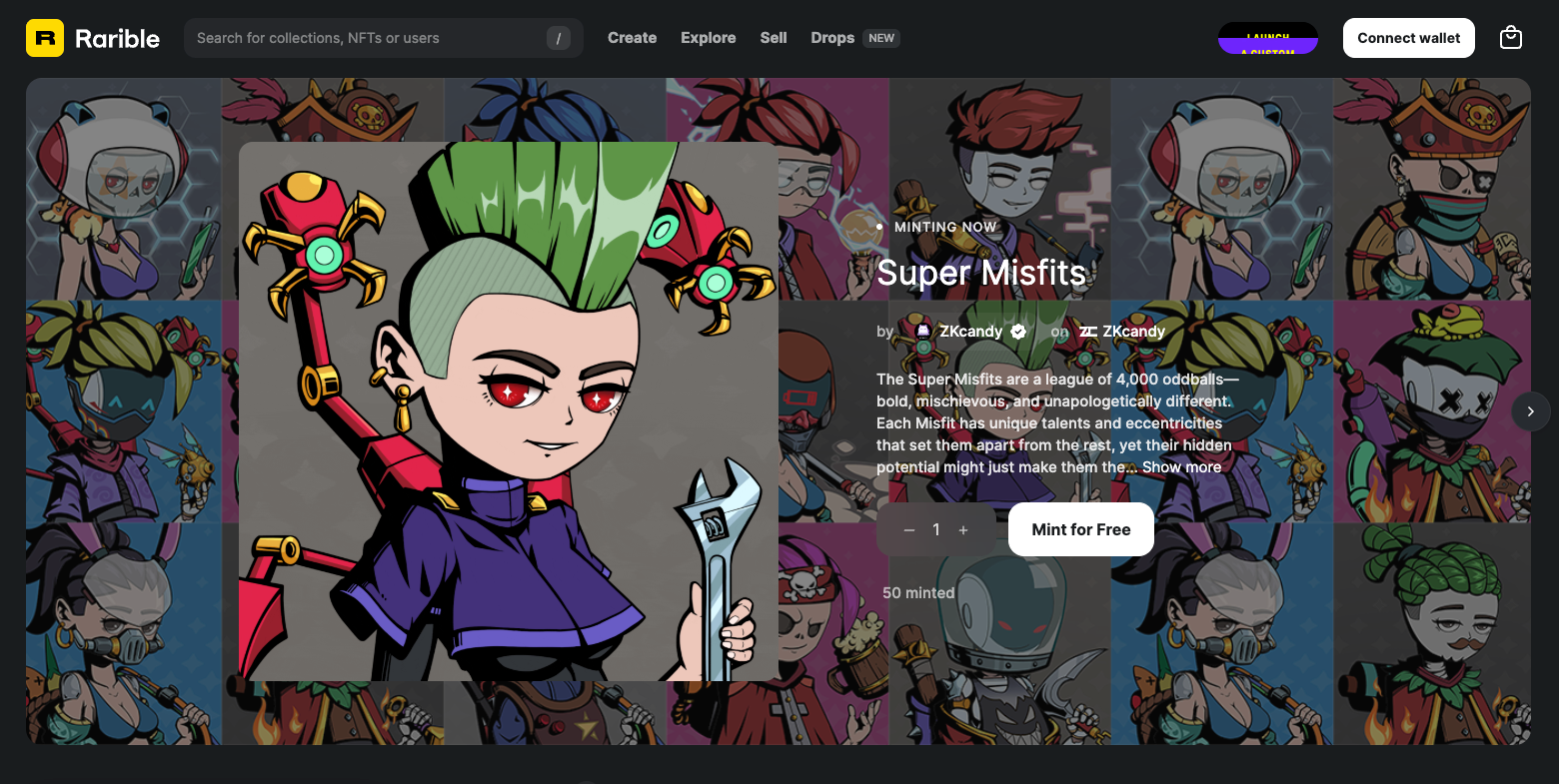
If you’re looking for a user-friendly interface and community-driven marketplace, Rarible might be the right fit. It lets you mint, buy, and sell NFTs across multiple blockchains (Ethereum, Polygon, and Tezos), and it even has its own governance token, RARI.
5. LooksRare
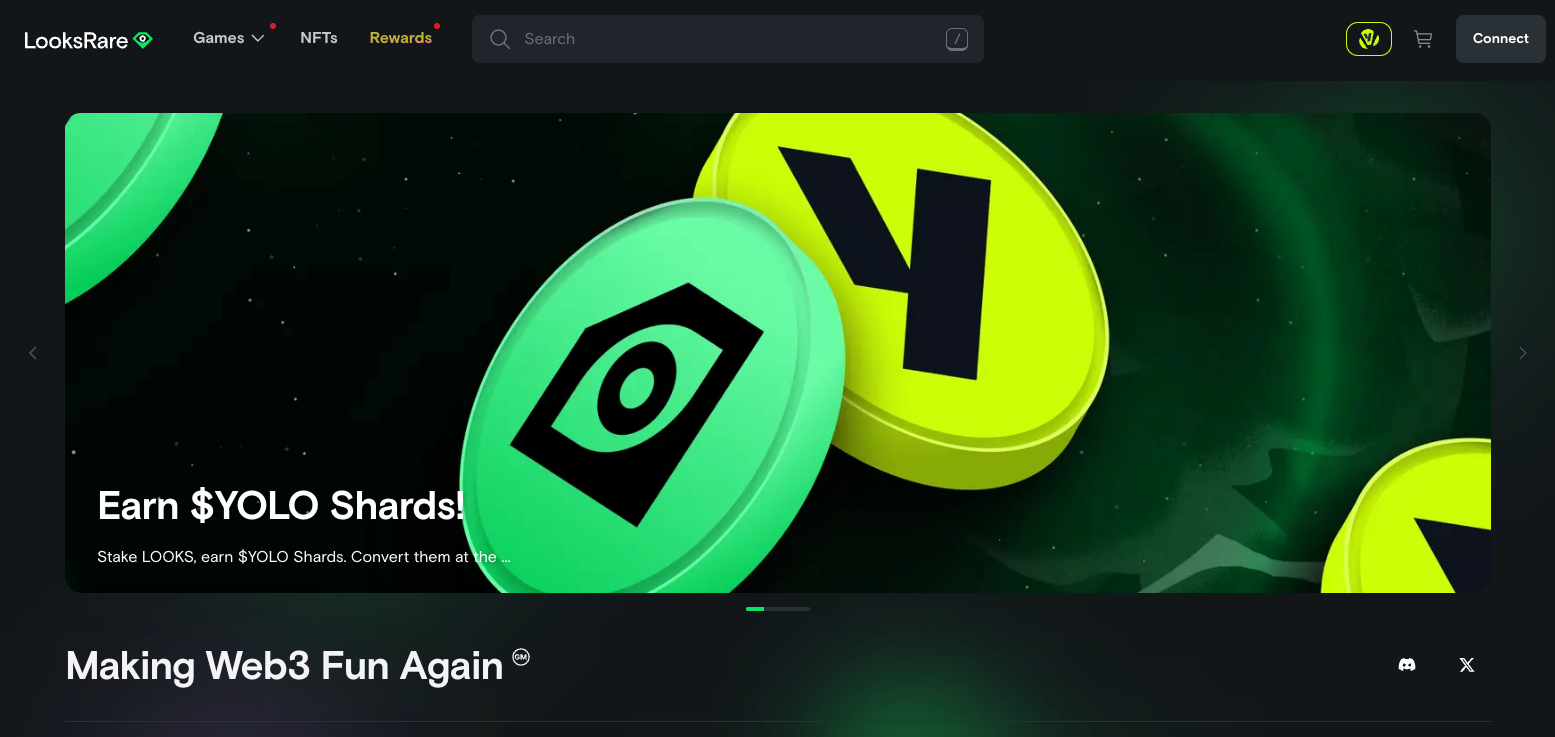
LooksRare is an Ethereum-based, community-focused alternative to the larger marketplaces. It rewards users with its native LOOKS token when they buy and sell NFTs, making participation more rewarding than on most other platforms.
6. Crypto Punks
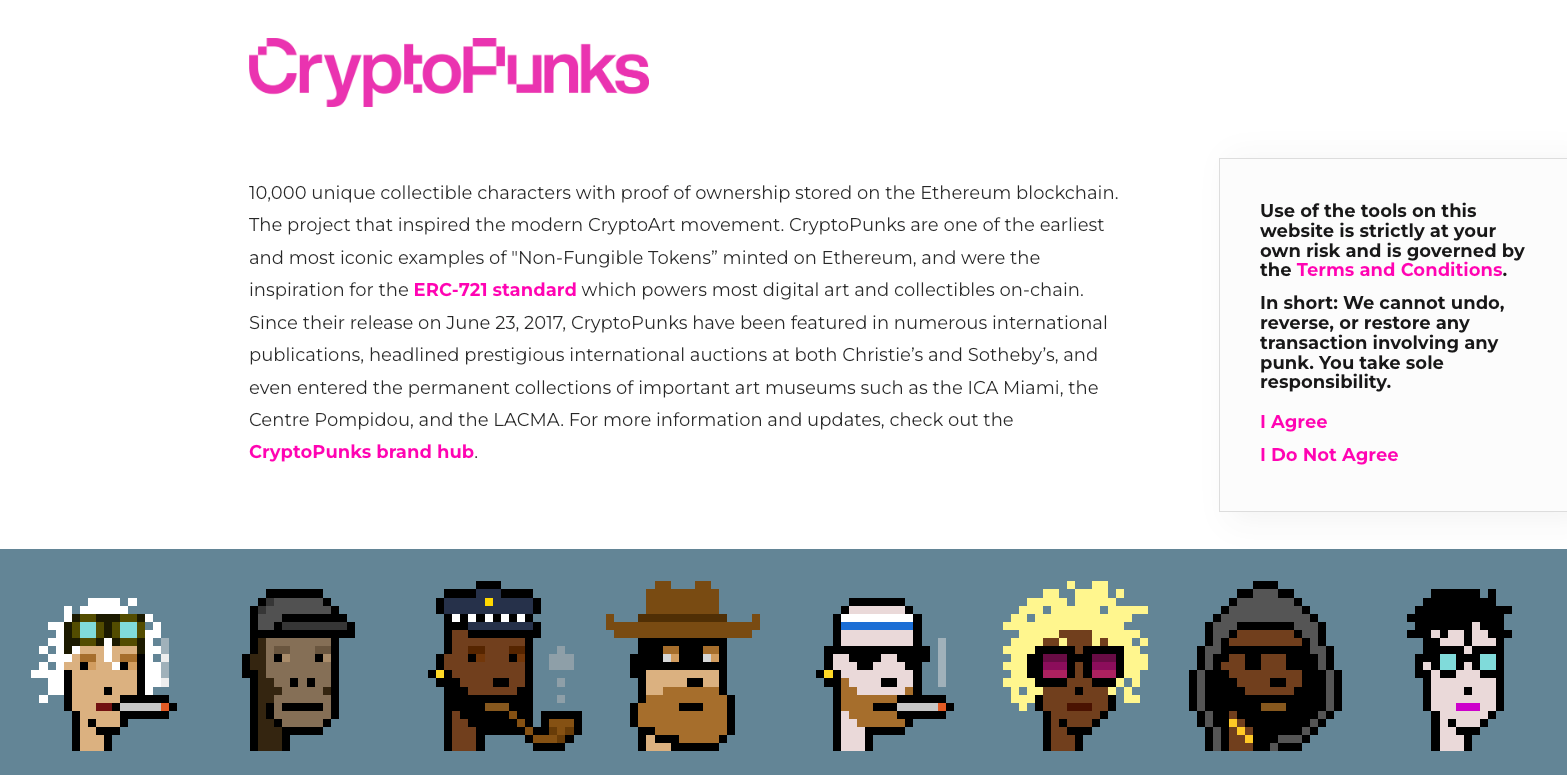
CryptoPunks is a collection that kick-started the NFT industry. At launch, anyone could claim a “Punk” for free and pay only the Ethereum gas fee. Today, those same NFTs sell for millions, including the famous CryptoPunk #5822, which went for over $23 million in 2022.
7. Gamma
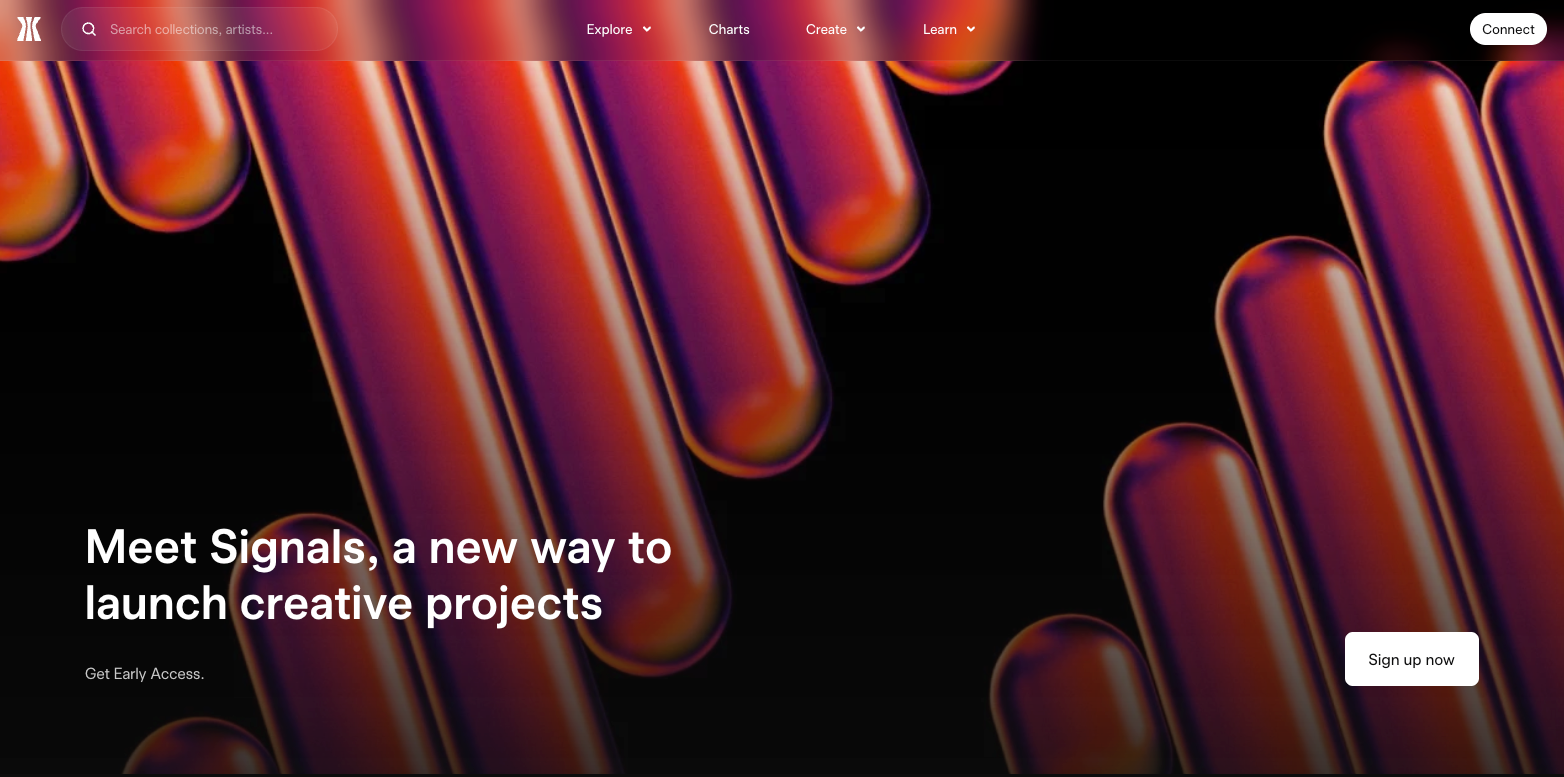
For anyone interested in Bitcoin-based NFTs, Gamma is the place to explore. It’s one of the few platforms that lets artists and collectors trade NFTs while anchoring ownership to Bitcoin’s secure network, making it an ideal spot for minting and showcasing collections.
8. Mintable
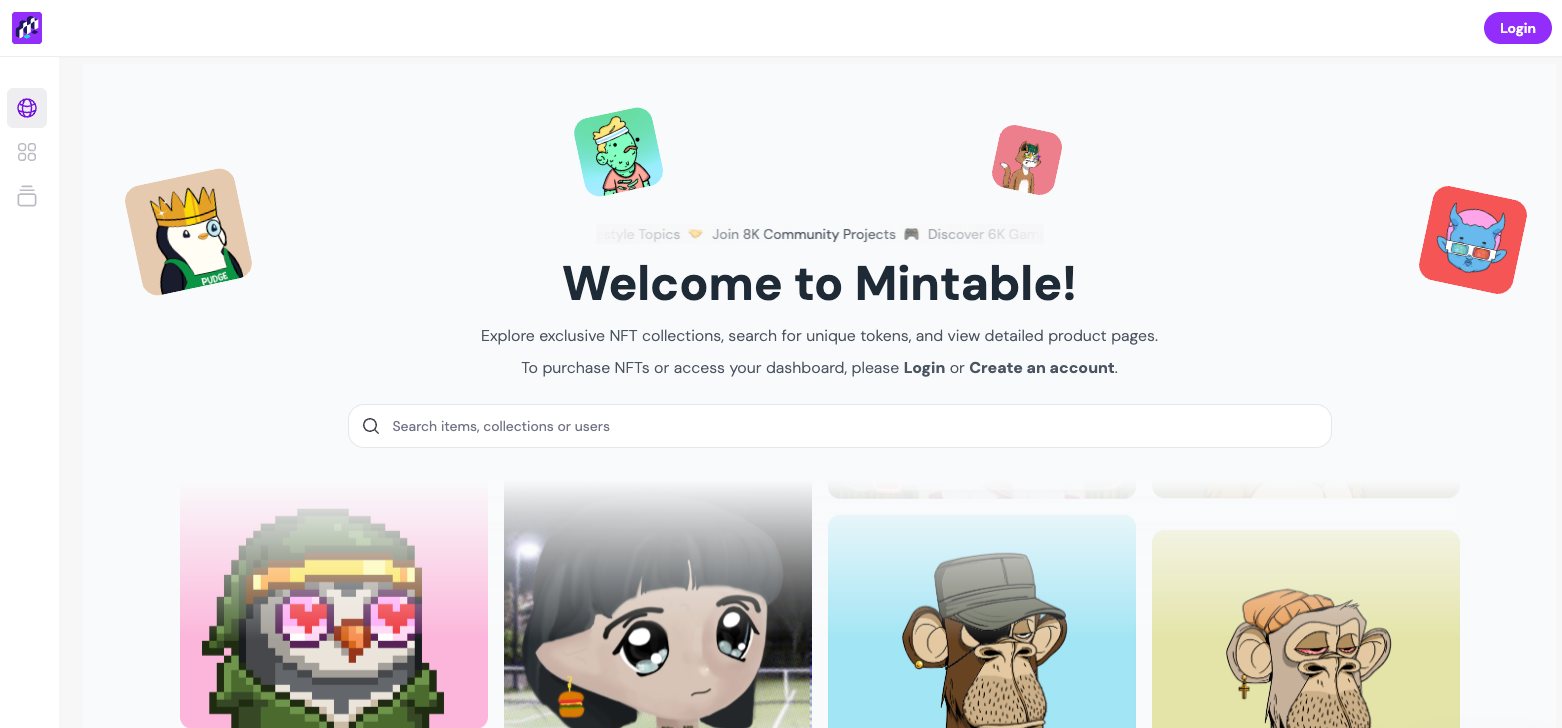
Mintable earns a spot on the list of the 10 best NFT marketplaces for its user-friendly design and gasless minting. This feature lets beginners create NFTs without paying upfront fees or needing coding knowledge. The platform hosts a wide range of digital assets, from art and music to collectibles, making it a solid place to start exploring NFTs.
9. Nifty Gateway
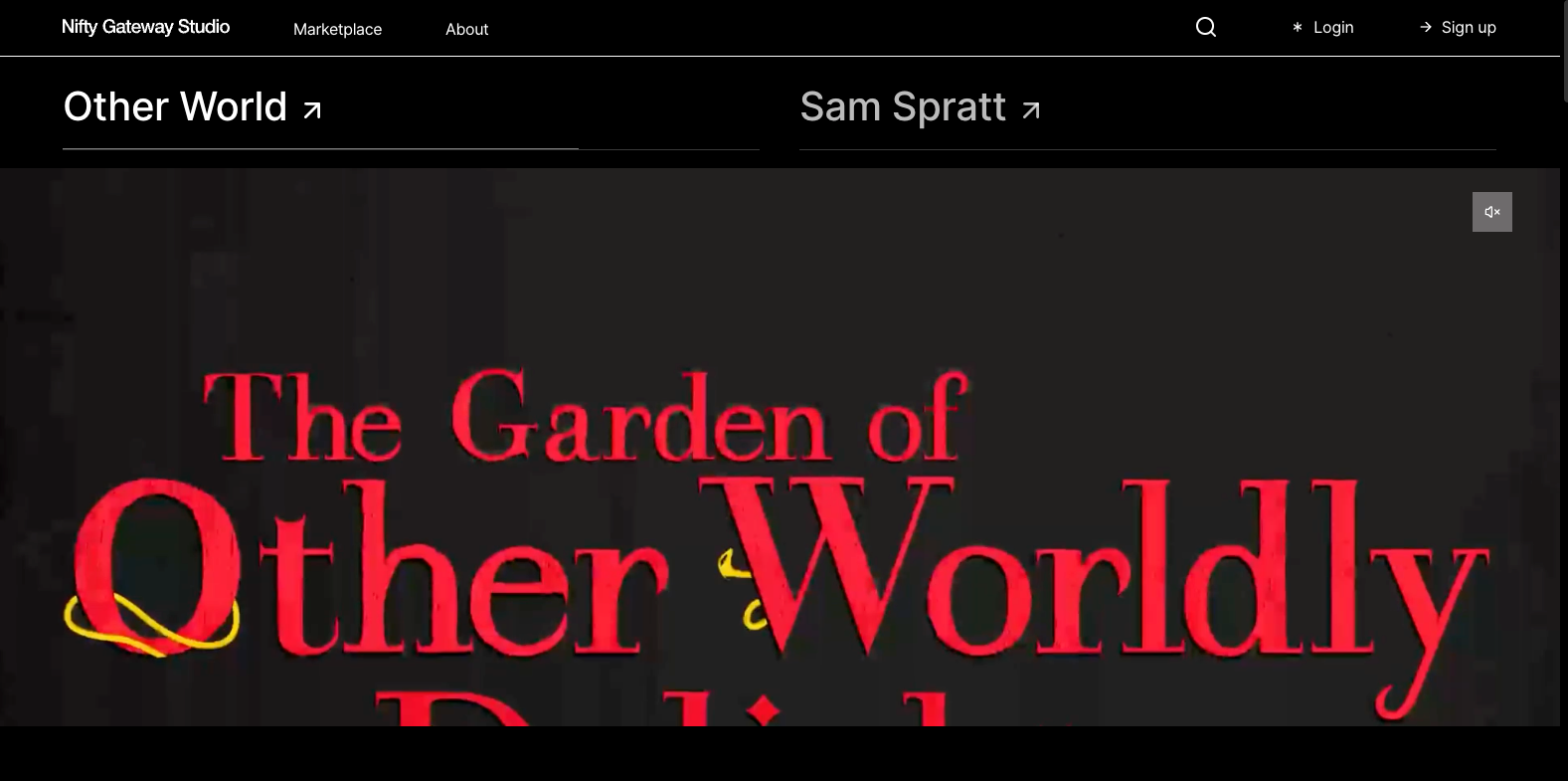
Nifty Gateway is a popular choice for mainstream audiences drawn to high-profile NFT drops and well-known artists, musicians, and brands. One reason NFT enthusiasts love this platform is that you don’t need a crypto wallet – purchases can be made directly with a credit card.
10. SuperRare
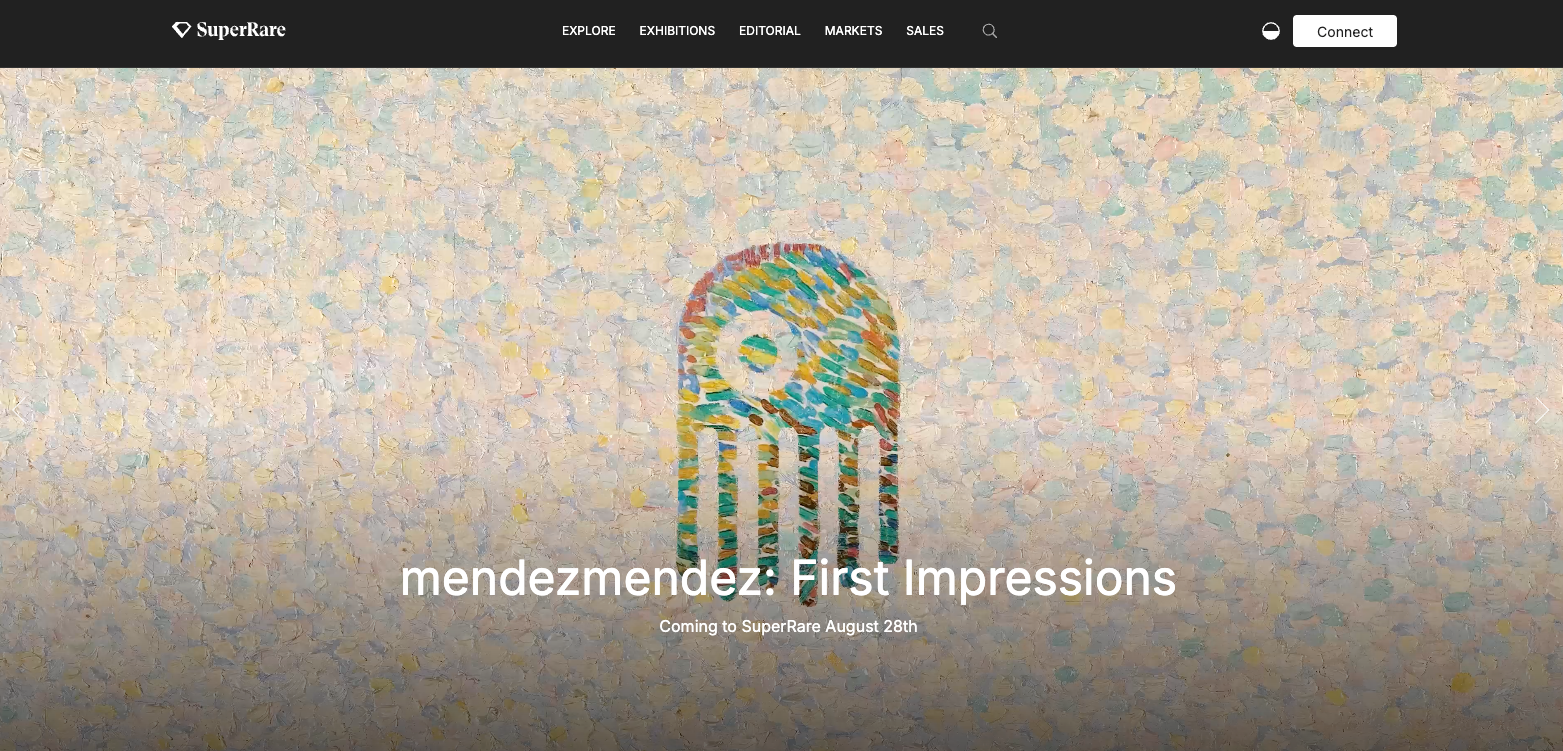
SuperRare is an NFT art marketplace that feels closest to a digital gallery. Every piece is a one-of-a-kind creation, and the entire platform is carefully curated, adding a strong sense of exclusivity. It’s become a space where serious collectors seek quality, while artists gain visibility in an environment where creativity matters more than sheer volume.
Types of NFT marketplaces
Different marketplaces serve different purposes, and some are built with a specific audience in mind.
Here are a few examples:
- Zora: Open-source protocol for NFT creators and developers
- Foundation: Creator-focused drops that spotlight emerging artists
- Audius: A hub for music NFTs and audio-driven projects
- Fractal: Gaming-focused marketplace with in-game assets and collectibles
Multi-chain vs. single-chain marketplaces
Multi-chain platforms let you trade across several blockchains. The clear advantage is variety, with more types of NFTs and a larger pool of buyers and sellers.
Conversely, single-chain platforms keep everything on one blockchain. The benefit is focus, often with lower NFT platform fees, smoother transactions, and a stronger niche community.
How to choose the right NFT marketplace
With so many options available, here are some factors that can help you decide where to buy NFTs.
Blockchain support
Ethereum has the largest audience, Solana and Polygon are faster and cheaper, and Bitcoin Ordinals is building momentum.
Fees and royalties
Transaction fees and resale royalties vary across platforms. If you trade often, look for lower fees. If you’re a creator, focus more on royalty policies. Also, fees are just one part of the cost – taxes may also apply when you sell NFTs.
Liquidity and trading volume
High volume means it’s easier to buy and sell quickly.
Wallet compatibility
Check if your wallet works with the platform. For example, MetaMask is common for Ethereum, while Phantom is popular on Solana.
Asset types
Choose a marketplace that offers what you need. Some focus on art, while others specialize in gaming, collectibles, or music.
User experience
An intuitive interface makes minting, browsing, and bidding easier.
Security and reputation
Look for platforms with a proven track record of protecting users and handling trades transparently.
Future of NFT marketplaces
The next wave of NFT marketplace innovations is shaping up to be more intelligent, connected, and practical.
First, thanks to AI-powered search, browsing for NFTs is less overwhelming, helping collectors discover pieces that match their interests. Second, support for Bitcoin Ordinals is expanding, opening the door for NFTs to tap into Bitcoin’s reputation for security. On top of that, cross-chain interoperability is booming, and platforms are working toward seamless trading across multiple blockchains.
Real-world uses are also expanding, with tickets, property, and other assets being tokenized. As NFTs begin to overlap with real-world value, tax considerations will matter more as well – even if you plan to reinvest in crypto.
Track and manage your NFTs with CoinTracker
Once your NFT collection starts to grow, keeping track of everything can quickly get tricky. CoinTracker makes it simple by connecting to your wallets, exchanges, and NFT marketplaces. It organizes your trades, calculates gains and losses, and helps you stay tax compliant across blockchains.
Join millions of users who already rely on CoinTracker to manage their crypto and NFT portfolios with ease.
FAQ
What is the best NFT marketplace in 2025?
OpenSea and Blur remain leaders, but the right choice depends on your specific needs.
What are the best NFT platforms for beginners?
Rarible and Mintable are easy to use and popular with new crypto enthusiasts.
Which NFT marketplaces have the lowest fees?
Blur is a favorite among active NFT traders thanks to its low or no fees. Magic Eden also earns praise for its budget-friendly transactions.
Disclaimer: This post is informational only and is not intended as tax advice. For tax advice, please consult a tax professional.